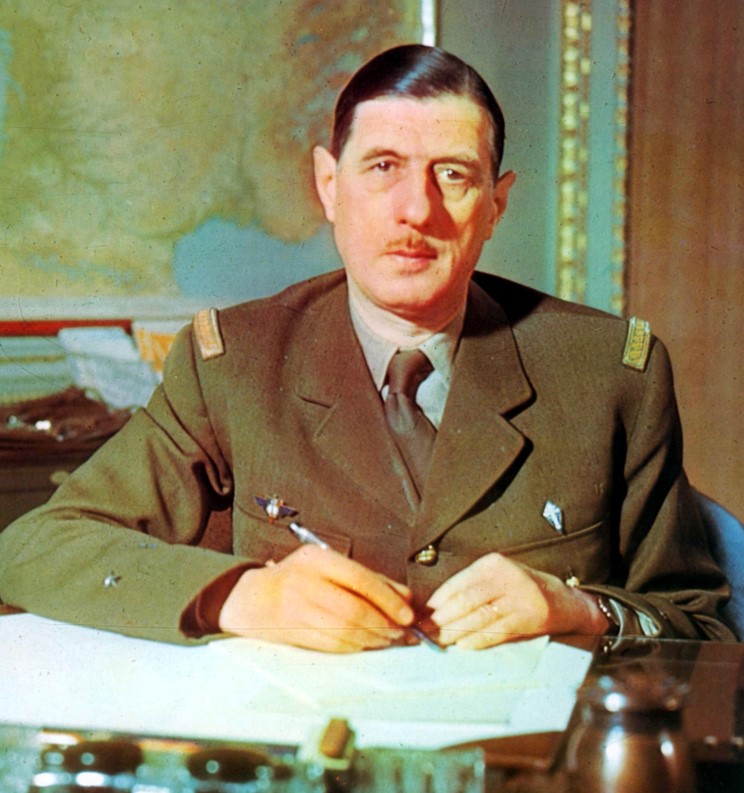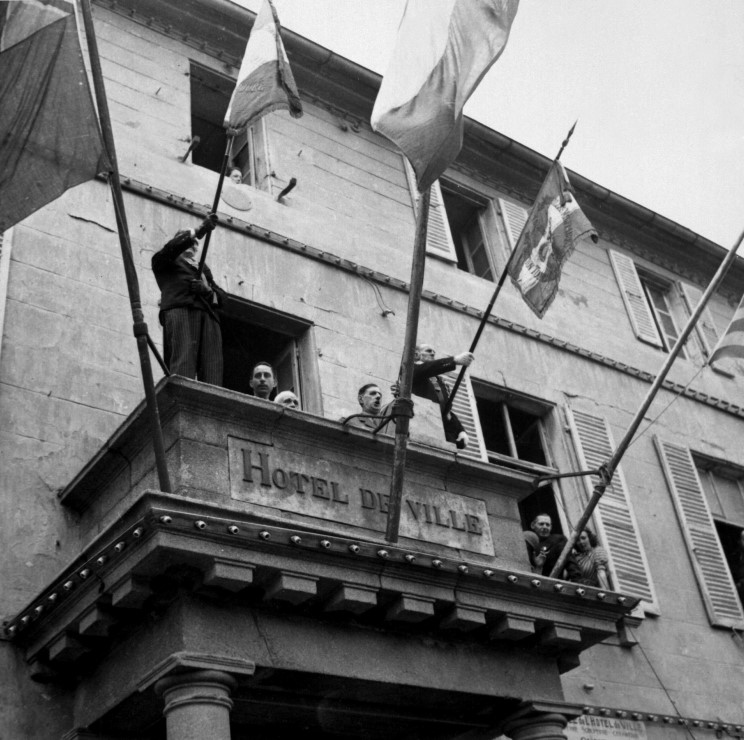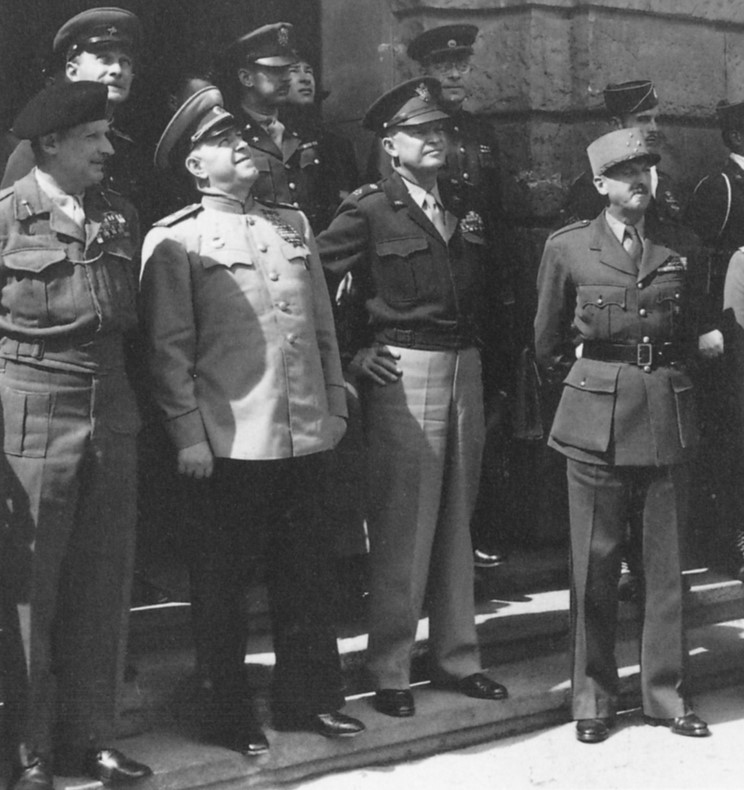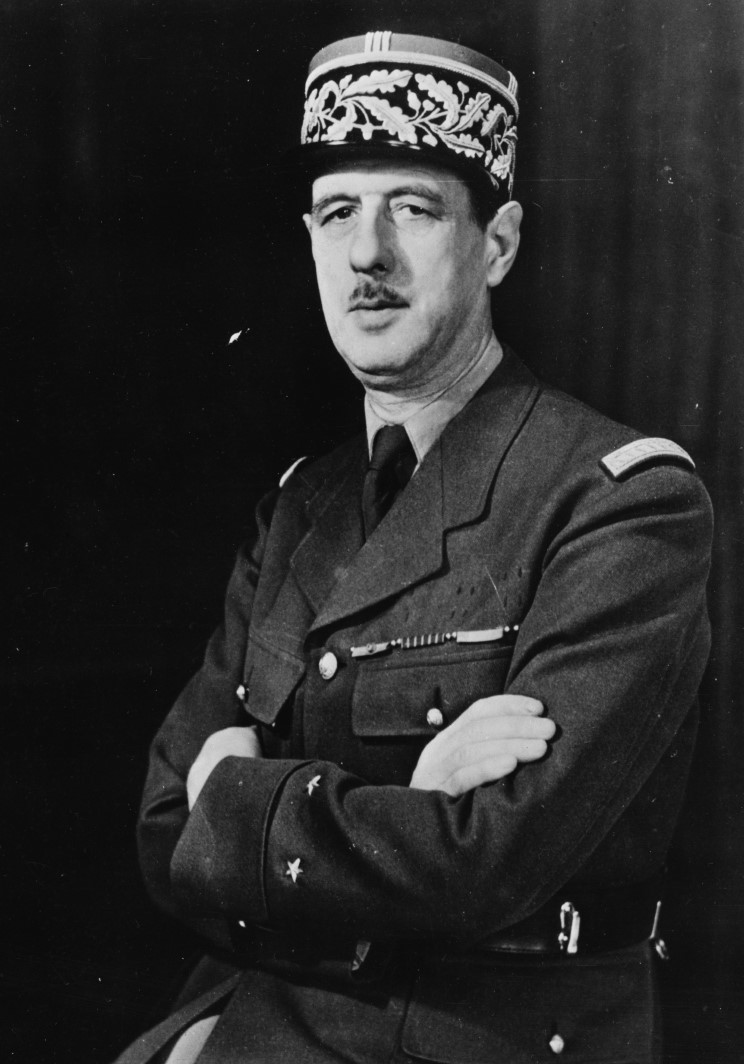President Charles André Joseph Marie de Gaulle |
|
(1890-1970) |
 |
General Charles de Gaulle seen in Feb. 1943.
|
 |
August 20, 1944: General Charles de Gaulle addressing the people of Cherbourg, France.
|
 |
Front row from left to right;
|
 |
General Charles André Joseph Marie de Gaulle, date unknown.
|
French general and statesman who led the Free French Forces during World War II and later founded the French Fifth Republic and served as its first President. In France, he is commonly referred to as Général de Gaulle or simply Le Général. Prior to World War II, de Gaulle was a tactician of armoured warfare and advocate of military aviation. During the war, he reached the rank of Brigadier General and organized the Free French Forces with exiled French officers in England. He gave a famous radio address in 1940, exhorting the French people to resist Nazi Germany. Following the liberation of France in 1944, de Gaulle became prime minister in the French Provisional Government. Although he retired from politics in 1946 due to political conflicts, he was returned to power with military support following the May 1958 crisis. De Gaulle led the writing of a new constitution founding the Fifth Republic, and was elected the President of France. As president, Charles de Gaulle ended the political chaos and violence that preceded his return to power. Although he initially supported French rule over Algeria, he controversially decided to grant independence to Algeria, ending an expensive and unpopular war. A new currency was issued to control inflation and industrial growth was promoted. De Gaulle oversaw the development of atomic weapons and promoted a pan-European foreign policy, seeking to diminish U.S. and British influence; withdrawing France from the NATO military command, he objected to Britain 's entry into the European Community and recognized Communist China. During his term, de Gaulle also faced controversy and political opposition from Communists and Socialists, and a spate of widespread protests in May 1968. De Gaulle retired in 1969, but remains the most influential leader in modern French history. Charles de Gaulle resigned the presidency on 28 April 1969, following the defeat of his referendum to transform the Senate (upper house of the French parliament, wielding less power than the National Assembly) into an advisory body while giving extended powers to regional councils. Some said this referendum was a self-conscious political suicide committed by de Gaulle after the traumatizing events of May 1968. As in 1946, de Gaulle refused to stay in power without widespread popular support. De Gaulle retired once again to Colombey-les-Deux-Églises, where he died suddenly in 1970, two weeks before his 80th birthday, in the middle of writing his memoirs. In generally very robust health until then, despite an operation on his prostate some years before, it was reported that as he had finished watching the evening news on television and was sitting in his armchair he suddenly said "I feel a pain here", pointing to his neck, just seconds before he fell unconscious due to an aneurysmal rupture. Within minutes, he was dead. De Gaulle had made arrangements that insisted that his funeral would be held at Colombey, and that no presidents or ministers attend his funeral, only his Compagnons de la Libération. Heads of state had to content themselves with a simultaneous service at Notre-Dame Cathedral. He was carried to his grave on a tank, and as he was lowered into the ground the bells of all the churches in France tolled starting from Notre Dame and spreading out from there. He specified that his tombstone bear the simple inscription of his name and his dates of birth and death. Therefore, it simply says: "Charles de Gaulle, 1890-1970". Unlike many other politicians, de Gaulle was nearly destitute when he died. When he retired, he did not accept pensions to which he was entitled as a retired president and as a retired general. Instead, he only accepted a pension to which colonels are entitled. His family had to sell the Boisserie residence. It was purchased by a foundation and is currently the Charles de Gaulle Museum. |
(Text courtesy of Wikipedia)
|
Class Overview |
||
Page created Dec. 17, 2007 |